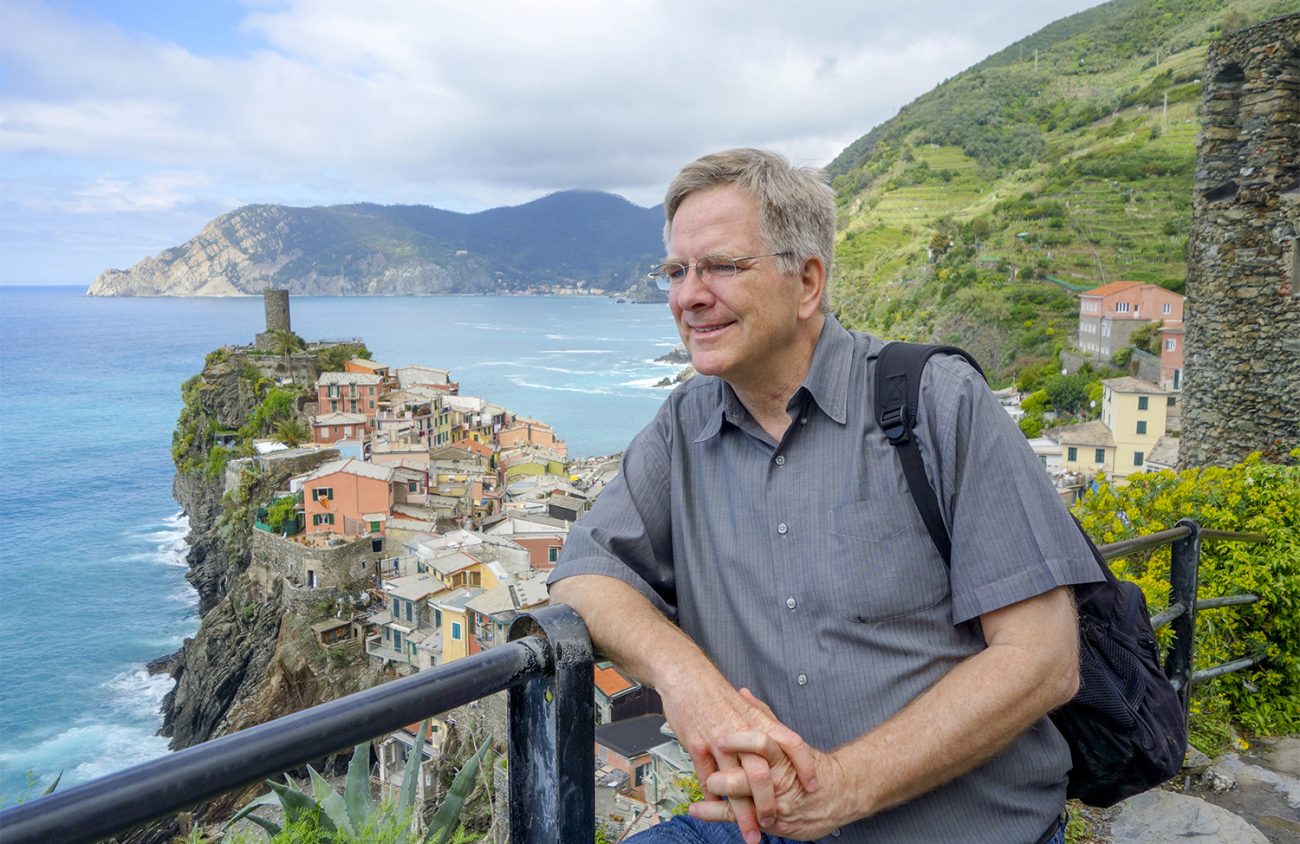Sometimes, Rick Steves wants to smoke a joint. And why not? The popular travel personality tells Eugene Weekly, it’s his right to do so, as it should be for everyone.
“If I want to hang out at home, smoke a joint and listen to my favorite music, that’s my civil liberty,” he says.
Steves, a TV and radio host and a best-selling European guidebook writer, has advocated for the legalization of marijuana for more than 15 years, volunteering his time on the board of the National Organization for the Reform of Marijuana Laws (NORML). He says illegal marijuana is racist, wrong and counterproductive. Steves was appointed as the NORML board chair in February, and is optimistic that this could be the year the federal government legalizes marijuana.
“This is a pivotal year because we are finally moving from state by state initiatives into possible federal action,” Steves says. “It’s finally all hands on deck with the federal drug policy and reform community.”
In December 2020, Congress passed the MORE Act, which would federally legalize cannabis. The bill still has a long way to go, but Democrats are continuing to push for it. In the last four months, five states legalized recreational marijuana, with New York the most recent. Steves, who grew up and lives in Washington, saw his own state legalize marijuana in 2012. He did a speaking tour of Oregon when this state had legal weed on the ballot in 2014.
The state by state approach to legalizing the drug is probably the best pathway to eventually legalizing it everywhere, Steves says. With prohibition, he adds, it historically takes place one state at a time because states are often the incubators for federal change.
He explains that there was a time when marijuana was a partisan issue, something liberals advocated for, but now it is less partisan. Politicians are realizing that even in conserative states, marijuana gets more votes than Trump or Biden, Steves says.
As chair of the NORML board, Steves says his responsibility is to make sure the board is functioning well and stays true to the mission, which he is passionate about.
“When I say I’m pro pot, it’s because I’m pro civil liberties, and I’m anti-racism and in favor of fiscal responsibility,” Steves says, adding that privileged white people like him don’t get arrested for it as often as people of color.
“Instead of making money for criminals and gangs it just becomes a highly regulated, highly taxed legal market that sends money to state capitols.”
During non-COVID times, Steves travels through Europe for part of the year, and he says his travelling career was a major influence in his decision to jump into marijuana activism. He says that more than a decade ago, politicians feared speaking up about the issue because it would threaten their political career.
Steves didn’t have a political career, but he had a platform to speak on and learned a thing or two from his European friends, who were surprised to learn marijuana was outlawed in America.
“In Europe, even back then, joints were about as exciting as a can of beer, and they couldn’t believe we were locking up people in our country for using marijauna.” Through his travels and conversations with friends, Steves says he learned how Europeans handle these issues.
“We like to legislate morality; we legislate and we incarcerate,” he says of the U.S. “And it doesn’t work very well. It’s racist, expensive and pretty tragic.” In Europe, he says lawmakers are motivated by a philosophy called pragmatic harm reduction, which focuses on reducing the risk of hard drugs, rather than giving weed all the attention.
“You have an opioid problem and say, ‘What should we do?’ Legalize marijuana. You focus credibility on the hard drug, which is really the risk.”
So he decided to speak up and wanted to bring a European sensibility to the discussion in America.
Since then, Steves’ marijuana activism has taken him around the country, and he gives talks on the benefits of legalizing the plant, including his 2014 Oregon speaking tour.
“I had so much fun traveling around Oregon,” he says. “What I enjoy most is going to conservative areas and explaining this is not ‘hemp fest gone wild’ — it is a very principled stance.” He adds that most people who advocate for legalization aren’t necessarily enthusiastic about marijuana, just realize it is a right everyone should have.
Steves says the most effective way to support pro-civil liberties organizations like NORML is to volunteer or give philanthropically.
